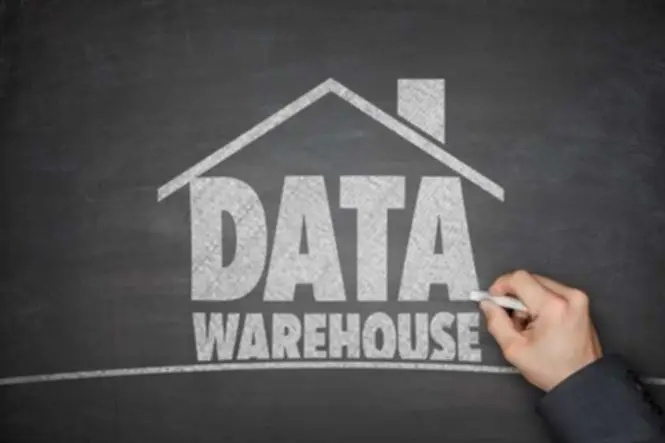Process intelligence is a combination of data-driven capabilities that work toward analyzing and optimizing enterprise processes. It takes information from the different data systems your small business relies on, analyzes it, and uncovers patterns and insights that reveal new operational inefficiencies that are holding you back. But it may possibly additionally simulate process adjustments, monitor your processes, make predictions, and more. In comparability, process mining instruments extract helpful data from sources like event logs. You may go for process discovery software, which performs the invention section for process and task mining. By analyzing process knowledge and leveraging advanced analytics capabilities, process intelligence instruments can generate detailed reports and dashboards that present real-time visibility into these performance metrics.
This culture won’t solely use information to react to the current however will leverage it to anticipate and shape the future. Customizable dashboards can filter info for various departments, roles, or even particular projects, making them indispensable in any data-driven organization. However by working with SS&C Blue Prism, the agency automated the identification and monitoring of 100 percent of its transactions.
- The strategy leaves no stone unturned when it comes to minimizing waste and maximizing resources.
- It includes obtaining visibility into processes, collecting and analyzing related knowledge, understanding how these processes perform, and using this data to identify areas for enchancment.
- Trendy organizations generate quite so much of data of their every day operations by way of both digital systems like SAP and physical techniques like IoT sensors.
- This knowledge can originate from a variety of techniques, including enterprise useful resource planning (ERP) methods, buyer relationship management (CRM) platforms, and different applications used inside the organization.
Methods Don’t Play Nicely Collectively
How can you employ course of intelligence in your organization and what are the potential advantages you probably can get? Widespread use instances for Course Of Intelligence embody figuring out and eliminating bottlenecks, enhancing efficiency, reducing costs, bettering compliance, and growing agility. Solutions like Appian Course Of HQ provide you with fast answers to business and process questions, so you’ll be able to quickly generate insights and take motion without having to be a process or information professional. Embrace the mindset of data-driven transformation to ensure your organization remains adaptable, aggressive, and primed for long-term success. Course Of intelligence is not a standalone concept—it’s an integral a half of your organizational technique.
They can also use employee enter to obtain a complete understanding of the organization’s processes. Nevertheless, these conventional strategies present an incomplete view of an organization’s processes and how they’re executed. Furthermore, manually monitoring processes can alter the ways by which workers carry out those processes because of their consciousness of being observed. While these tools have distinct capabilities, additionally they share many features, creating debate amongst business analysts about the best ways to implement course of improvement initiatives.
Enhancing Efficiency And Effectiveness
It empowers firms to find downside areas and spots for improvement through the ability of knowledge and superior analytics. By analyzing course of information at a granular stage, these options can identify particular tasks, actions, or handoffs which might be causing delays, resource constraints, or other impediments to environment friendly execution. The first step in leveraging course of intelligence for enterprise optimization is to gain a comprehensive understanding of the prevailing processes inside a corporation. These digital representations could be constantly up to date and refined primarily based on real-time course of information, ensuring that they accurately replicate the current state of operations. Course Of intelligence is the practice of accumulating, analyzing, and monitoring your operational data to understand how processes work and uncover insights for how to enhance them. To derive actionable insights, data must be analyzed and introduced in a understandable manner.
Information expertise performs a prominent role in enterprise and provides a basis for much of our present workforce. From communications to data management and operational efficiency, IT helps many business capabilities and helps drive productiveness. However plucking one out of thin air is risky—implementing efficient automation requires greater than guesswork.
The imaginative and prescient of an clever, self-optimizing enterprise pushed by knowledge insights and improved choice making is changing into actuality fast. This retains companies nimble and in a position to modify shortly to adjustments available in the market, customer wants, or regulations. This complete course of discovery not solely ensures that no course of is overlooked but in addition provides a strong foundation for subsequent optimization efforts. Task mining provides granular insights into the precise duties carried out by users, including the time spent on every task, the purposes used, and any deviations or workarounds employed. These solutions leverage advanced knowledge integration strategies to seamlessly join with these disparate techniques and extract relevant process knowledge. This knowledge can originate from a variety of methods, together with enterprise resource planning (ERP) methods, buyer relationship administration (CRM) platforms, and other applications used within the group.
Establish Opportunities

These algorithms leverage subtle statistical and machine studying models to establish process variants, deviations, and bottlenecks, providing a comprehensive view of how work is truly being executed. The foundation is built upon the effective extraction and transformation of process information from various sources. In Distinction To conventional methods, which rely heavily on human observation and interpretation, it makes use of subtle algorithms and machine studying strategies to research huge quantities of course of data mechanically. It provides a granular view of how work is carried out, uncovering valuable insights into task durations, resource utilization, course of Operational Intelligence variants, and deviations from established protocols. By utilizing advanced information tools and visuals, it provides firms data-backed insights to make informed decisions and hold improving.
So course of experts introduced new applied sciences to autonomously analyze work, in hopes of getting a clear image of operations. Use Camunda Optimize as a central analytical software for viewing and managing enterprise processes. Its open architecture what is process intelligence lets you integrate Optimize’s process intelligence along with your current reporting capabilities to create related, custom, shareable insights. Process intelligence is a systematic evaluation of manufacturing processes to gain perception into their efficiency, performances, and areas for improvement.
An IT job is any position that involves the implementation, support, upkeep, restore or safety of knowledge or laptop systems. These involved in improvement, deployment or support of the systems or functions others use are the commonest examples of IT jobs. If you want downside solving and being an lively learner, a expertise job might be right for you.

RPA and Course Of Intelligence are like two sides of the same coin, complementing one another to supply a complete solution for enterprise process optimization. Whereas Process Intelligence equips you with the analytical insights you need, RPA provides the sensible means to implement these insights, forming a robust symbiosis for business innovation and growth. Robotic Process Automation (RPA) can be considered the mechanical arm of your Process https://www.globalcloudteam.com/ Intelligence toolbox. While Process Intelligence provides you the insights you have to streamline and optimize your workflows, RPA provides the automation functionality to actually implement these changes. By mimicking human interactions with software and performing repetitive tasks, RPA bots can carry out the routine work, releasing human capital to focus on extra complex, value-added activities.
